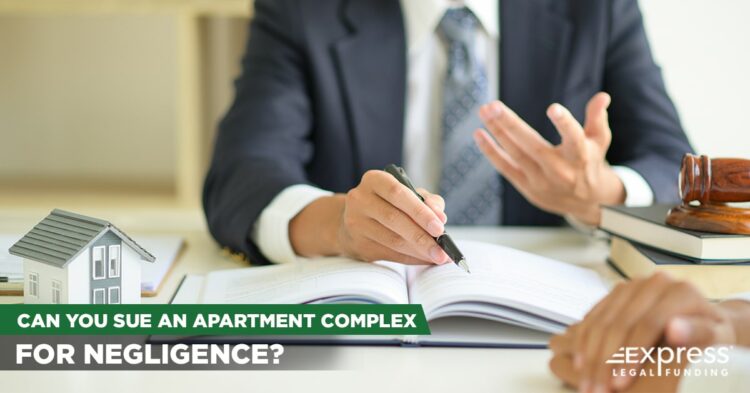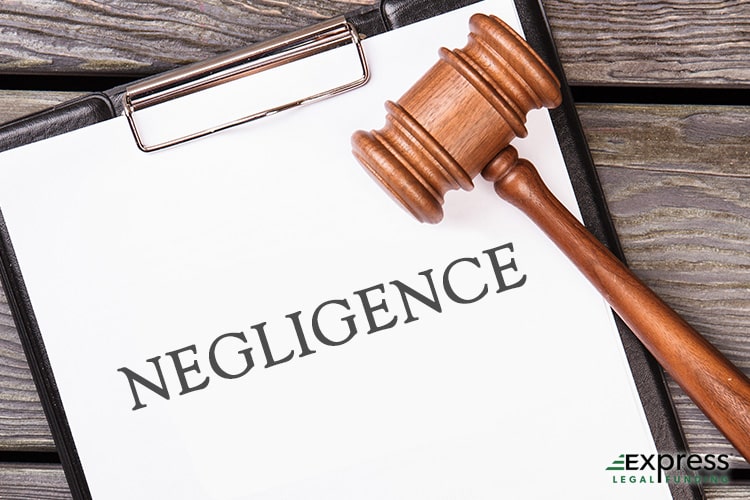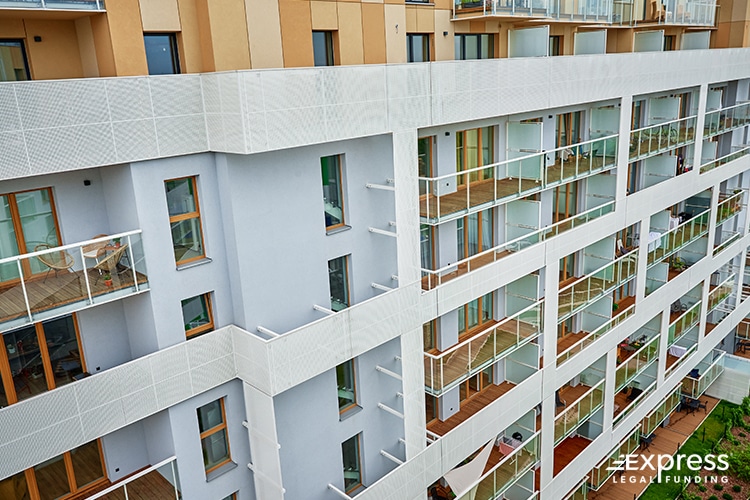
It’s not surprising that companies cut corners to avoid costs and maximize profit margins. When these corporations take shortcuts, it can lead to severe consequences for their customers and clients that use their services.
Most often, these consequences can include physical and mental harm coming to the client as a result of the negligence of the company caused by the cost-saving practices.
Apartment complexes are no different and not immune from the effects of greed. Apartments are a vital part of the American real estate industry. Apartment buildings provide housing options for those not ready or able to purchase a house outright.
Most apartments are temporary residences rented and not owned(condos) by the tenants living there.
Since apartments are often rental units with annual contracts, tenants can afford to live in them without owning the property, which makes apartments a more accessible housing option for those who do not have the credit history or financial means to purchase a home.
Along the same line, some states extend the Fair Housing Act to make some apartment complexes rent-controlled, with the intent to keep the housing option more affordable. Although, like everything, there are pros and cons to this.
Regardless of who pays the rent and for how much, the apartment complex’s upkeep and maintenance are the property owner’s and property manager’s responsibilities.
So, if the complex becomes too worn down and is not adequately maintained, it can pose a severe risk to the residents and lead to harm.
That begs the question of whether you can sue an apartment complex for negligence.
What is Apartment Complex Negligence?
Negligence is a civil and tort law term often used to assign responsibility over an incident that a company or property owner could have avoided. Negligence’s definition is generally the same across all industries, but its applicability is subject to change.
Regarding legal matters, negligence is defined as the failure of one party to exercise the level of care expected of someone in their position.
As far as apartment complexes are concerned, negligence results from the apartment complex owner or property management company failing to ensure the units and general area are habitable.
The level of care expected of anyone within the apartment complex varies, with the apartment management company having responsibilities related to the property and the building.

When your apartment complex’s management fails to uphold its duties, they are negligent. These acts of negligence often involve management personnel failing to maintain the structural integrity of the complex.
While residents of an apartment complex are liable for the damage they cause, normal wear on facilities falls under the landowner’s responsibility.
The upkeep of apartment complexes can have to do with the landscaping, plumbing, electricity, and integrity of the buildings. All of these can directly affect the safety of the complex, and the landlord’s negligence in these areas of upkeep can cause serious injury.
When one or more of these responsibilities is neglected, the habitability and safety of the apartments deteriorate.
This deterioration of the property can eventually make the complex too dangerous to live in for risk of injury. When a resident is injured due to this negligence, they can often seek legal action against the negligent party.
The question is whether or not it is possible to take legal action against your apartment complex if you suffered an injury from negligence.
Can You Sue An Apartment Complex?
The short answer to this question is “yes,” you can sue an apartment complex for negligence. It is within the bounds of a tenant’s rights and the legal system to sue a landlord or an apartment complex’s owner for an injury that resulted from negligence.
While it is your legal right to sue your apartment complex for negligence, there are a few caveats for what qualifies you for a claim.
You can only sue another party for negligence if you are a victim of that negligence and it has harmed you somehow.
So the possibility of harm due to the property owner’s failure to upkeep the safety of the complex does not qualify.
Yet, the risk is concrete, and there are plenty of situations where the negligence of an apartment complex can affect or hurt you.

1. Deteriorated Building and Structure
The most common result of apartment complexes’ negligence is the architecture’s deterioration.
The average apartment complex has multiple buildings with even more units within each. Each has stairwells, supports, and other structures that help keep everything intact.
These buildings are inspected before being opened for use, but time wears away at the integrity of these apartment buildings.
In some situations, the architecture deteriorates to the point where it is no longer viable and poses a risk to the safety of the tenants.
This deteriorating structure of the building is where the legal problems for your apartment’s owners begin.
If the architecture has become unsafe and you are injured due to this structural issue, you have a solid negligence claim to sue the apartment complex.
The good news is just as the parts of an apartment complex are diverse, so are the types of unsafe conditions you can sue.
It does not take a drastic event like a piece of the ceiling falling on your head or falling off a broken balcony for you to have a claim against your complex for the injury caused by these dangerous conditions.
2. Unsafe Common Spaces
Deteriorated architecture is dangerous and is not the only negligence that can impact your safety when living in an apartment complex. It can make the complex unsafe to live in due to other seemingly small but dangerous hazards.
Something as simple as tripping from stepping on a loose step on the staircase or hurting yourself by tripping and falling in a poorly-kept parking lot may enable you to file a claim against your apartment building owner.
3. Negligent Security Measures
Inadequate security measures are sadly often overlooked and can have fatal consequences. Not having proper apartment security features can attract criminal activity.
In some states, landlords have a duty of care to implement adequate security to keep their tenants safe from violence and crime. Apartment property owners and landlords may be required to have basic and extra security in place to protect the tenants.
Apartment Complex Security and Safety Measure Examples:
- Apartment gates with codes
- Security cameras
- Security guards
- Proper lighting indoors and outdoors
All these protection measures can be put in place to keep renters safe. Unfortunately, too often, these safety precautions are not put in place, leaving tenants in a dangerous situation.
In many of these cases, you could sue the apartment complex for the crime that happened to you by filing a negligence lawsuit against the apartment building owner, who can file a claim with their insurance company to cover the damages.
The lawsuit would claim the apartment property complex had negligent security measures and protections, which led to you being a victim of a criminal act like robbery or assault.
4. Roach and Ant Infestations in Apartments
Another significant sign of a landlord’s negligence is infestation by vermin such as cockroaches or ants.
Even the best-kept apartment complexes are not immune from the occasional small animal entering a rental unit, which is typical of the smaller insect and bug varieties like roaches, ants, fruit flies, and gnats.
However, the presence of these pests in your apartment is not always understandable and can be the fault of your apartment complex.
There is a point where the number of vermin in your apartment can exceed normal levels and will require an exterminator to fix the problem.
When this happens to such a degree throughout your apartment, it can mean your apartment is uninhabitable and not fit to live in.
Apartment Complex Pays For Exterminator in Common Areas
Although it is always the responsibility of the apartment complex to ensure pests and vermin are not out of control in the common areas, like the stairs and hallways between the apartment units, it is not necessarily so within the apt units.
So in this instance where we are discussing your private apartment, it becomes a matter of what the complex has agreed to cover in the rental property agreement.
If the complex promised in the contract pest control services and failed to regulate the levels adequately, they would be negligent in their contractual duties.
Although it is more of a gray area for insects and vermin than issues with degraded architecture and structural safety, health risks are associated with infestations.
Additionally, severe infestations can cause high financial costs and force you to pay for the exterminator and possibly a hotel room for the duration of the process.
How to Sue an Apartment Complex?
Even though it may be evident to you that the apartment complex is deteriorating with no effort from the management to correct the issue, proving negligence is more complicated than that.
You will need to prove that the apartment complex’s management and owners were negligent and the damage caused to you was not a fluke that the management had no way of preventing.
That is where your personal injury lawyer or law firm can give you legal advice once they’ve analyzed your premise liability situation.
Proving Your Apartment Complex Was Negligent
The most critical detail in filing a negligence claim against anyone, including an apartment complex, is proving they were negligent and that the incident was not a genuine accident.
While the landlord and apartment management staff are responsible for keeping the area surrounding your apartment safe, they are not omniscient.
Negligence involves a conscious dereliction of the level of care expected from an individual or organization. The fact that it must be a conscious dereliction differentiates negligence from an accident.
Not to say that every landlord is honest about this distinction, and there are not plenty of instances where it’s fair for you to sue your landlord, but it is a critical part of your claim.
If the Apartment Complex Has Prior Knowledge of the Problem
The difference between negligence and an accident is prior knowledge of the issue that caused the harm to the tenant. You will need to prove that the management office of your apartment complex was aware of the issue and did not take proper action before it affected you.
For example, you can only claim negligence for tripping over a loose step on the staircase if the management staff knew it was loose and did nothing to resolve the problem.
It falls to the staff to ensure the stairs are safe to walk up and down on, so they must readily act on any reports of damage that might jeopardize the safety of the tenants.
Typically, if such an architectural issue is not detected by surveys conducted by staff, the tenants of the complex will report it to see it fixed. The line between an accident and actual negligence begins to form.
It is unreasonable to expect the complex to have the stairs repaired the same day the loose step is reported. However, that does not mean it is legally acceptable for the apartment building to do nothing in the meantime leaving everyone who lives there exposed.

However, that depends on the type of safety hazard, as certain types require caution tape and warning signs to keep people safe from falling into or slipping on something while trip and fall risk remains unfixed.
Although it takes time and money to repair the step and be ready for use by the tenants, it is reasonable to expect a prompt response from the complex’s staff. Landlords and property managers can’t delay when it comes to tenant safety.
If someone gets injured on that step the same day the complex first hears of the issue, it is not an act of negligence since the complex might not have had time to launch the repair efforts to fix the staircase.
If the Apartment Management Company is Negligent With Repairs
The distinction would be if, after learning of the loose step, the complex takes no measures to repair the step.
Typically, there is a 24-hour grace period from the initial report where the apartment cannot be held liable for serious injuries(There are plenty of exceptions for a personal injury lawyer to make a claim.).
After that, the apartment staff must warn tenants about the loose step to minimize injuries until it is repaired. It’s also a good idea to read your lease agreement to find the contact information of the property management company and any emergency phone numbers the rental contract shows for you to call.
In addition to getting this contact info, it is a good time to read through your tenant rights, the conditions of your security deposit, eviction terms, and the requirements to give notice if your apartment is not in a livable condition.
The strength of your case and your chances of whether you can sue your apartment complex get stronger when the staff takes no measures to warn the tenants about the step or fails to launch a repair within a reasonable timeframe. That is when apartment management becomes liable for negligence.
Being aware of a loose step that could injure tenants and failing to act is a negligent act. It can cause you to get hurt and require you to file a personal injury claim to sue your apartment building.
These lawsuits often have defendants who bought commercial policies and can be they can be worth a lot of money. So they will rarely end up in small claims court.
The difference between negligence and an accident is crucial to the success of any legal action you take against the complex’s management and owner.
Filing a claim for an incident caused by something the complex was unaware of can seriously damage the validity of your claim.
That means you must prove the complex’s manager was aware of the issue that led to serious injury or wrongful death.
What Can Disqualify Your Claim Against Your Apartment Property Manager?
While the primary goal of your negligence claim against an apartment complex is to sue for money in a civil tort, you have to prove your apartment complex was negligent in maintaining the facilities.
A few details can easily disqualify you from suing your apartment building’s owner, even if proving your complex’s negligence is legally viable.

The clearest reason your claim can be invalidated is if the incident that led to the personal injury lawsuit is found to be your fault. “Fault” is almost always a constant in every civil tort and is used to determine the responsible party.
You Can Not Sue Your Apartment Complex For Loss That’s Your Fault
Regarding the negligence of an apartment complex, two major factors can disqualify any claim you have for being your fault:
- Proper Facility Use: The first detail that can impact the viability of your lawsuit is whether you were using the facilities properly.For example, say the gate to your complex’s pool area breaks, lands on you, and causes an injury. If the gate fell when you opened it, the complex could be liable if they were aware of a rusted hinge.
However, the premises liability case dissolves if you forcefully swing the gate open and close for fun and cause the hinge to break, leading to you suffering the same injury. This same concept applies when attempting to prove a landlord’s negligence.
Since you misused the complex’s property and were too rough on it. It becomes your fault since the gate is not meant to be swung open forcefully.
- You Were Not Supposed to be There: The second detail impacting the complex’s liability is whether you had legal cause to be on the property.Let us say you were walking down the street, and to save time, you decided to cut through the complex as a shortcut to another destination.
To accomplish this, you attempt to jump the front gate, which breaks under your weight, and you suffer an injury in the subsequent fall.
Since you are not a resident and were technically trespassing on private property, no negligence is involved. You are instead liable and may even have criminal charges pressed against you for trespassing and property damage charges.
By you being guilty of either of these, the apartment complex is made free of its responsibility.
Like all things legal, that is not always the case, depending on certain extenuating circumstances. But generally, the apartment owner or landlord is not liable if the above criteria are met.
Closing Statements on Suing Apartment Complex For Negligence
The American legal system takes negligence claims seriously, so there is no place for frivolous suits. Accusing your apartment complex of negligence will always lead to a lengthy legal proceeding that carries consequences that must you must consider.
Suing an apartment complex will often be seen as a threat and likely alienate some of the complex staff.
Therefore, it is best to only make claims against your apartment complex for valid reasons rather than to earn a quick settlement.
When negligence is genuine, and harm is caused, the legal claims help to prevent repeat incidents that might harm other residents.
While negligence claims are essential to ensuring your apartment complex does not foster a dangerous environment and that you can receive financial compensation for your injuries and damages, they are no easier or cheaper than other claims.

When filing a legal claim against an apartment, several legal costs emerge throughout the case.
These costs are typically routine such as what your personal injury attorney has to spend on the case, like the filing fees necessary for the claim to proceed and eventually their fee.
Unfortunately, while your having to pay these fees is contingent upon your claim’s success, these delayed and risk-free costs do not include the cost of living.
So you are still stuck with paying for your day-to-day costs and medical expenses that likely have gone up because of the injury and damage sustained in your lawsuit against your apartment building.
Slip and fall cases bring extra medical bills, and deteriorated and unsafe housing conditions can bring on the sudden need and high cost of hotels.
These financial obligations can be used to build your personal injury attorney build your case but do not make it any easier while your case moves slowly and you wait for it to settle.
That is why we at Express Legal Funding, a Plano, Texas-based pre-settlement funding company, offer a financial service that helps plaintiffs in these situations.
We can advance you with the cash funds you need now to pay for essential services in exchange for the rights to a portion of your potential settlement or trial award should you recover money from your claim.
It’s a risk-free trade for you as we are taking on the risk, and we get repaid nothing if you lose your case in court(In some states, the money must be advanced as a recourse pre-settlement loan, which is a credit risk to the borrower.).
So that loss in court would still be a win in that you can keep the slip and fall lawsuit loan money we advanced.
That makes it not a credit loan product but a non-recourse lawsuit funding with the lien placed on the case proceeds and not you. By getting pre-settlement funding, you guarantee yourself access to getting money from your case, and you can get some money to bridge the gap.
You call us or visit our website to learn more and apply for legal funding anytime. We make it a quick and easy broker-free process for you to apply.
Additionally, if you found this article about whether or not you can sue an apartment complex helpful and want to learn more about lawsuits outside of tenant law, please do not hesitate to explore more of our peer-reviewed blog.
You can always contact us anytime, 24/7, for a free consultation to learn more about legal funding. We are here to help.
